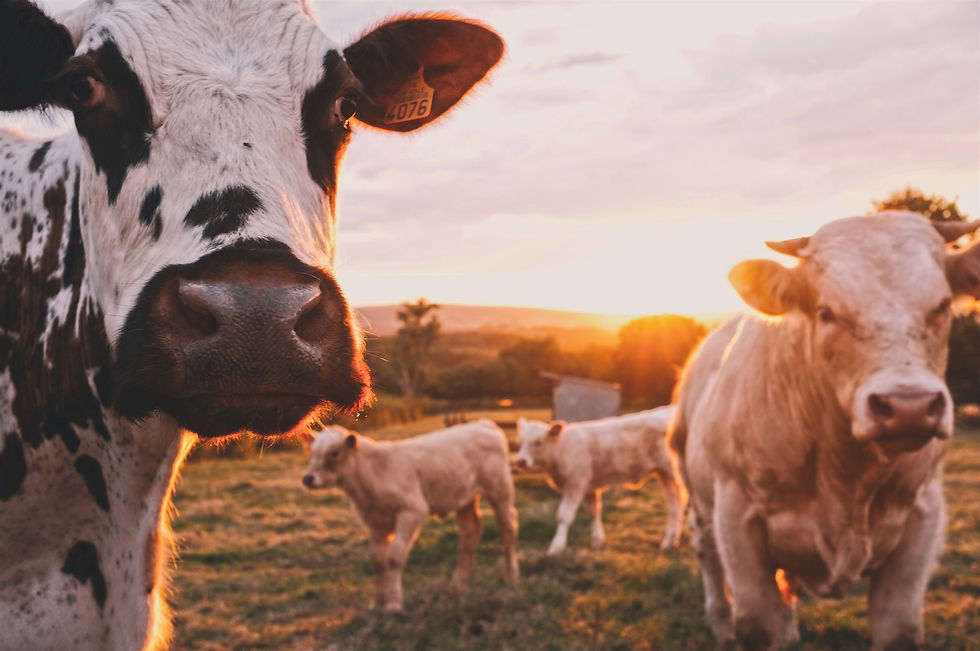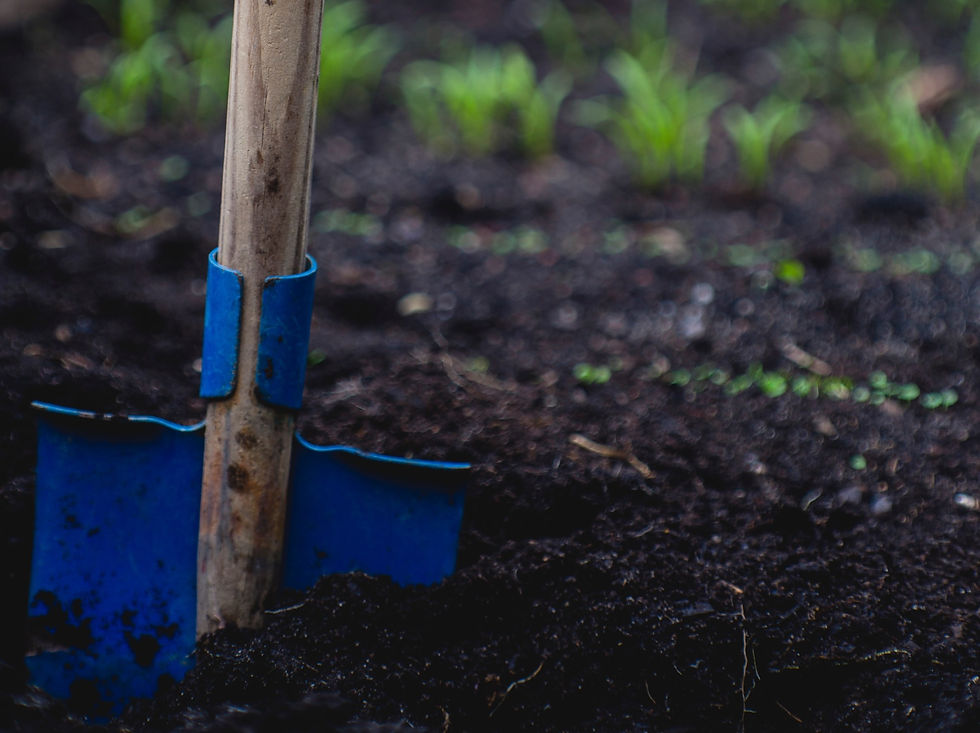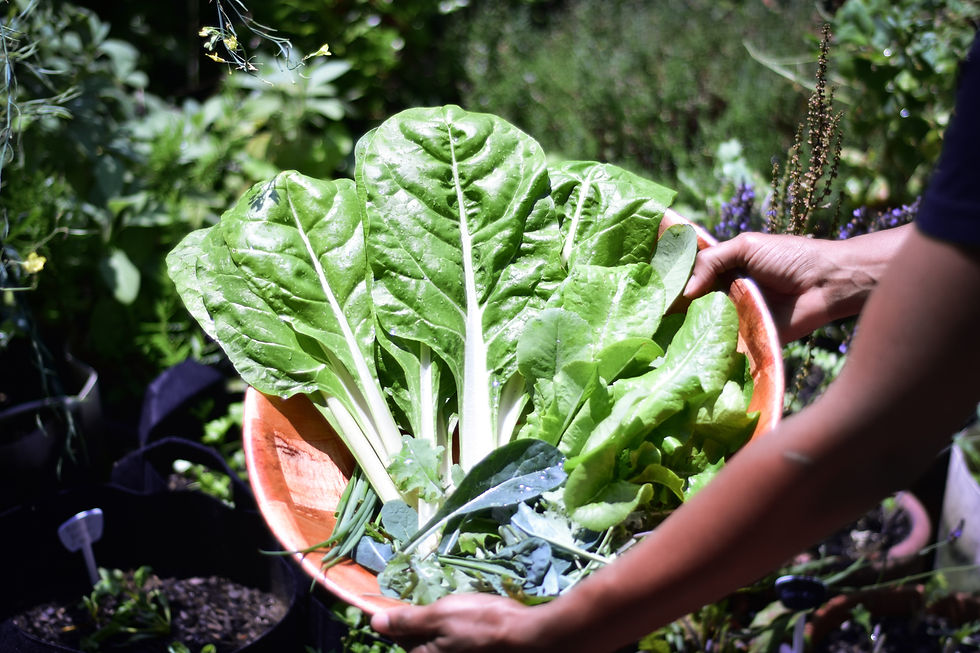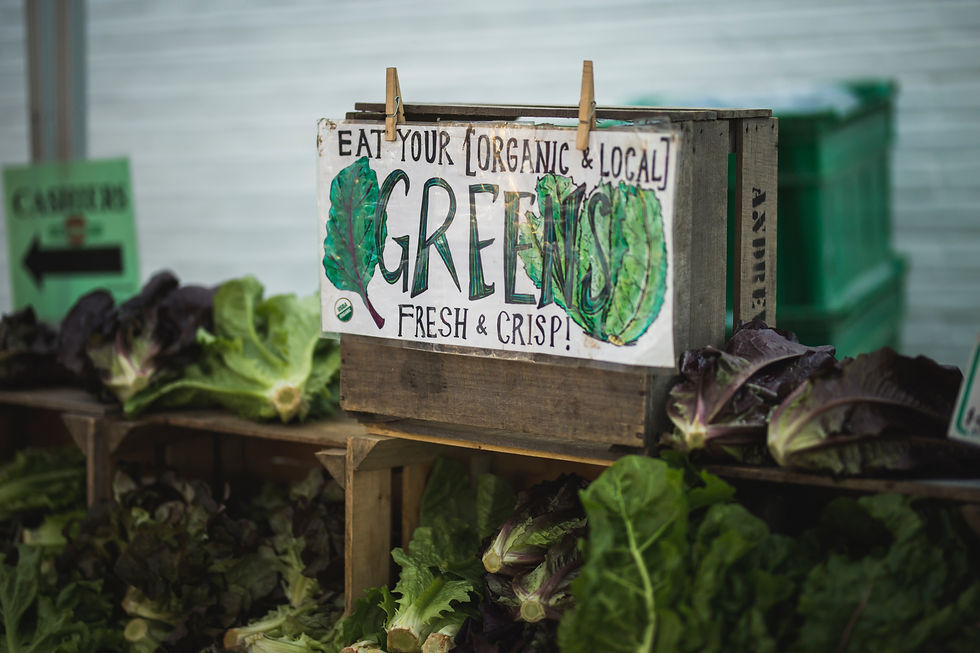When you hear the word 'organic' what pops into your mind? Is it 'it's healthier for me'? or is it 'it's just too expensive'?

Unfortunately organic practices involve heftier prices, but that doesn't make organic food unaffordable or unobtainable. Making the switch initially can seem a little overwhelming and impractical, however there are some tricks that will make it just that little bit easier.
But first lets talk about the word 'organic' and why it is the best health choice for your body and for your family, because when we say to others "we eat organic", having an answer as to why helps a great deal in shutting down the sceptics. I don't think I'm the only one who gets slightly annoyed when you get that 'you're crazy look' from people who don't understand.
What is organic?
Organic at its roots means food grown, harvested, packaged, processed and made without the use of synthetic pesticides, antibiotics, growth hormones, synthetic fertilisers, synthetic chemicals, preservatives, artificial colours and flavours, and is non-genetically modified.
But there's more...
Organic also means better for the environment. Organic food production is based on a system of natural farming that maintains and replenishes soil fertility without the use of toxic chemicals as stated above. Products that are organically certified, for example: with the Australian Certified Organic logo, go through a rigorous certification process that can take up to 3 years to become classified as organic.
"For farmers, converting to organic is more than switching out similar products. It is about understanding the natural cycles of farm agroecosystems and how to use them to their advantage rather than control them. Certified organic products represent agricultural practices that promote biodiversity, minimise erosion and protect watersheds, create wildlife zones and habitats, encourage soil regeneration with natural alternatives to synthetic fertilisers and pesticides, and so much more." - Australian Organic

So it isn't just about taking away synthetic chemicals, pesticides and fertilisers but also about being environmentally sustainable and responsible. By keeping the soil rich and fertile naturally, it has eliminated the need of synthetic fertilisers (eg. nitrogen, phosphorus and potassium) to be applied to the soil, which has a tendency to leach into waterways and cause eutrophication.
"Eutrophication is the process in which a water body becomes overly enriched with nutrients, leading to plentiful growth of simple plant life. The excessive growth (or bloom) of algae and plankton in a water body are indicators of this process. Eutrophication is considered to be a serious environmental concern since it often results in the deterioration of water quality and the depletion of dissolved oxygen in water bodies. Eutrophic waters can eventually become “dead zones” that are incapable of supporting life." - By Ju's
Why choose organic?

As mentioned above, organic eliminates any and all toxic chemicals, pesticides, fertilisers etc., but what does it mean for our health? We now know that it is beneficial for the environment but what is more important, is how eating organic benefits us.
Although the use of over 900 pesticides (herbicides, insecticides, fungicides), fumigants, mycotoxins, anthelmintics, antibiotics and other medications has been approved by Australian Pesticides and Veterinary Medicines Authority (APVMA) and the Food Standards Australia & New Zealand (FSANZ) have established Maximum Residue Limits (MRLs) of these chemicals, does not mean that these chemicals won't negatively impact your health or the environment.
"MRLs are the highest amount of agvet chemical residues that are legally allowed in a food product. Certified organic MRLs are 10% or less of that allowed within FSANZ. However, nearly all 900 products approved by APVMA are not allowed in organic production." - Australian Organic
Let's talk about the evidence that has surfaced on the negative impact of these chemicals to human health. Because once we touch on this, it becomes difficult to understand why these chemicals were considered human and food safe in the first place. It can't all be just about filling deep pockets by achieving faster production and picture perfect produce, right? We've always had more food than we've needed so why speed up the process?
Chemical Pesticides and Fertilisers
Information obtained from the Australian Organic website states that:
Chemical pesticides detected in non-organic foods are toxic, carcinogenic, neurotoxic or confirmed endocrine-disrupting chemicals and can negatively affect human health even at very low concentrations.
Peer reviewed studies have shown the negative impact to our health to be astounding. These include links to pregnancy defects (also linked to childhood autism), male sterility issues, female infertility issues (in relation to IVF), brain damage in children, reproductive issues in male infants, ADHD (significantly increasing the chance of a diagnosis), decreasing child mental development, and increasing adverse birth outcomes.
These are only a few of the many peer reviewed studies conducted and just by going off this you may start to think twice about the food that you eat and that your children eat. If anyone asks you why you eat organic, now you have some evidence to back you up.
Click here to read an article by The Guardian published Oct. 2022. in relation to household chemicals.
Antibiotics

Antibiotic resistance has been an issue for some time now, and we've all mostly thought it's because we overuse them. Yes, that can be the case for some, but research has shown that it can be largely attributed to the antibiotics that are fed to non-organic produce. Antibiotic residues remain in the meat and milk, and when we eat them we get a good dose ourselves (as well as bacteria that are resistant to antibiotics). Close to 80% of the world's antibiotics are fed to animals even if they aren't sick. This also causes animals to grow faster and even faster when an animal is already on growth hormones (this can be physically harmful to the animal).
Growth Hormones
Hormone growth promotors (HGPs) are used on livestock to help them grow faster and reach full maturity much quicker. The potential ban on HGPs is slowly growing amid concerns that they are toxic to human health. The EU and the UK have had bans on growth promotors since 1988 and have continued to regulate antibiotic use, however Australia still continues to use HGPs. The reasons for the ban was the believed link between cancer and HGP residues in meat for human consumption. Some meat sold in Australian supermarkets now have a label stating if the product is hormone/antibiotic free. Supermarkets have chosen this step, not because of safety concerns, but rather because the majority of their buyers now prefer hormone/antibiotic free meat.
Genetically Modified Organisms (GMO)
A GMO is a plant, animal, microorganism or other organism whose genetic makeup has been modified in a laboratory using genetic engineering or transgenic technology. This creates combinations of plant, animal, bacterial and virus genes that do not occur in nature or through traditional crossbreeding methods. - Non-GMO Project
In Australia, FSANZ states that all genetically modified foods and ingredients (including food additives and processing aids) that contain novel DNA or novel protein must be labelled with the words ‘genetically modified’. However this does not pertain to all GM foods, as those that do not contain novel DNA or novel protein are exempt. These are usually highly refined foods such as sugar and oil, "where processing has removed the DNA and protein from the food, including novel DNA and novel protein." Labelling is also not required for foods containing no more than 1% (in an ingredient) of GM food and where GM flavourings in food concentration are no more than 0.1%. Animals that receive GM feed are not considered GM themselves, therefore no labelling is required on meat, milk and eggs. FSANZ also does not maintain a list of food products that contain GM food or ingredients.
In Australia the growing of GM food is very limited compared to the United States. Currently only GM canola, safflower and cotton is commercially grown within Australia with trials of other GM foods underway. This also includes the feeding of livestock with these GM crops (GM feed is also imported for use and is NOT allowed to be grown).
But what does this mean for us if we eat GMO food? Australian Organic states that no regulatory body has ever required human toxicity studies to be carried out on GM crops, however the safety of GM crops are constantly being challenged by new evidence. Studies of the feeding of livestock with GM Bacillus thuringiensis (Bt) crops have found adverse affects such as:
Toxic effects or signs of toxicity in the small intestine, liver, kidney, spleen, pancreas
Disturbances in the functioning of the digestive system
Increased or decreased weight gain compared with controls
Male reproductive organ damage
Blood biochemistry disturbances
Immune system disturbance
Bacillus thuringiensis is normally a naturally occurring bacteria found in soil but GM Bt crops are engineered to have the endospore toxins of the bacterium in the plant. Bt contains proteins toxic to insects, hence why it has been propagated into GM seeds. These GM Bt toxins cannot be reliably broken down in the digestive tract and have been found circulating in the blood of pregnant women, furthermore, GM Bt toxins are not inert on nontarget human cells and they can present combined side-effects with other residues of pesticides specific to GM plants.
Genetically modified plants may seem like a miracle in the ridding of insects, plant diseases or herbicides but unpredictability in the environment is still a factor and can potentially cause nutritional disturbances, allergic reactions and toxicity.
The Benefits of Eating Organic
Now that we have discussed the potential and factual side-effects of eating non-organic food, as this is the main reason why organic should be chosen instead, we can move on to the benefits of what eating organic does for us.
Eliminates toxic pesticides and chemicals
Studies have shown that eating organic produce and food reduces the amount of pesticide/chemical residue in our blood and organs. This means that our organs are fighting less to rid our bodies of toxic chemicals, which means our organs are not constantly put under unnecessary stress. This then reduces the chances of diseases and illness.
Less heavy metals

Heavy metals are also found to be significantly lower in organic food then non-organic food. Studies show that organic soil maintains healthy and rich bacterium levels resulting in higher nutrient counts and fewer amounts of heavy metals, making organic farming practices sustainable and the best way to retain soil flora and minimise/prevent the contamination of agriculture fields with hazardous chemicals and toxic metal ions. With the absence of bacteria in non-organic soil, heavy metals are not able to be broken down and thus accumulate and reach toxic levels.
More nutrient dense
Organic produce has also shown the potential to be more nutrient dense than its non-organic counterpart. This means that our bodies are receiving more vitamins, minerals, antioxidants, carotenoids, phenolics and flavonoids, which in turn keeps us healthier for longer periods of time and reduces our chances of developing diseases. This also promotes good brain and body development in children where a nutrient dense diet is important.
Healthy gut microbiome
Organic produce is also beneficial in keeping our gut microbiome healthy. This is where 80% of our immunity resides. Research shows differences in organic and non-organic food, with organic food showing more beneficial potential overall than non-organic food.
Most diseases at their source begin with an unhealthy gut, when bad bacteria has overridden the good bacteria. Modern research has shown that mental health is greatly affected by our gut microbiome through the gut-brain-axis. What we eat plays a significant role in our mental health and with todays society relying on highly processed foods for nourishment, this exacerbating mental illness is of great concern.
Superior taste
Taste is also a factor that people who eat organic mention often. Aroma and taste of organic food is usually stronger than non-organic food. Whether this is linked to organic produce being more nutrient dense is unknown. However it can be attributed to the duration the plant is grown for and the way it is harvested. Organic produce is allowed to ripen on the plant naturally, whereas non-organic produce is picked raw and artificially ripened using a chemical called ethylene. Ripening fruit and vegetables on the plant means a higher natural sugar content which in turn means better taste.
Reduced cancer risk
A French study concluded that organic food could lower cancer risk. The study states that high consumers of organic food lowered their risk of being diagnosed with cancer by 25%. Breast cancer was the one most affected with a 34% less risk (in menopausal women) and 76% less risk with lymphomas.
How To Eat Organic Affordably
Below are some helpful tricks that my family and I use to keep eating organically in an age where prices keep going up and up.
Buy bulk
Although this may seem expensive initially, in the long term you do save. This works well with packaged goods that become cheaper by weight the more you buy. For example, 1kg of flour is $4 whereas 5kg is $15. Overall you are saving $5.
Always look for SALES
Another example for buying bulk is when packaged food is on sale. Buy what you need when you need it, but if it goes on sale buy more to have in your pantry. For example, canned tomatoes are half price. Buy double or more to last you for a while as the expiry is long. This may even last you until it goes on sale again. My family do this all the time to cut down on costs.
Share the costs
If you are part of a community or are close to people who also eat organic, splitting the cost of something works quite well. If you only need 2kg of flour and your friend needs 3kg, then buying the 5kg packet is more cost effective. Just divide the amounts and cost accordingly for each person. My family does this a lot with herbs and spices. My mum buys them in bulk and we take what we need as we need it, and we all save money.
Freeze produce and meat
This works well when meat or produce is on sale or reduced due to expiry. Buying like this saves you money long term and ensures that you have meat and produce on hand when you need it. We also find this works well with buying a whole chicken. Cut the chicken into pieces, like legs, wings, thighs etc. and freeze them in seperate ziplock bags for later use. The ribcage of the chicken and any extra bones/skin are frozen and used for soup stock in winter. We discovered that the cost of a whole chicken is cheaper than buying already portioned chicken unless it is on sale.
Freezing vegetables are slightly more time consuming but worth it to have them on hand when time is short and supermarkets are scarce. The ideal way to freeze most vegetables is when they are cooked or blanched, as this helps them to freeze better and thaw better for later use. The best way is to lay the prepped vegetables on a baking tray then place into the freezer. Once frozen, transfer to ziplock bags and remove any excess air. To freeze fresh herbs, finally chop and place into ice-cube trays then cover with olive oil or water. Freeze until solid then transfer into containers. Click this link to see how long to blanch/cook each vegetable.
Freezing fruit is way simpler. No cooking is required. Just cut the fruit into desired pieces, freeze on trays then place into ziplock bags just like vegetables. You can even puree the fruit and freeze them as ice-cubes. All the above is also useful when growing your own produce. Sometime you have too much and this saves it all from going into the bin.
Grow your own organic produce

Buying organic produce is definitely great but sometimes the costs can skyrocket due to environmental factors and demand. Growing every single vegetable isn't practical but there are some that grow fast and require little maintenance. This includes salad leaves and lettuces, tomatoes, radishes, pumpkin, sweet potato and potato and most herbs. We grow a range of things depending on the seasons and we've never had to use any form of pesticides. They just need to be watered once a day and planted in good rich soil, either in pots or garden beds. If you do come across some trouble just do a little googling and you'll find a solution quickly enough. Growing saves you much more money than any of the tricks above. Click here for tips on how to start you own vegetable garden.
Eat simply
This is an odd one but the way we see it: If you cut back or eliminate your intake of processed foods (including junk food) you do in a way save money. When we go to supermarkets, the majority of food in there (specifically packaged food) contains preservatives, artificial colours and flavours, a high refined sugar content etc., which is what is avoided in an organic diet. Therefore, all these foods become obsolete and you no longer look at buying them. All we do now is look at foods that contain all natural ingredients or are organic, and because there isn't as much out there, you do unintentionally buy less because you are restricted.
Start an organic community garden
Community gardens are slowly popping up more and more as people move towards natural and sustainable growing. As the cost of produce continues to sore this has helped relieve some of the financial pressure and pose good health benefits. Starting a community garden can be a little challenging to begin with but once you get the ball rolling the support from the community floods in. As long as there is a clear path of what you want to achieve with the community garden, then there is nothing stopping you from giving it a shot. This has shown to be beneficial for those who don't have the backyard or the facilities to grow produce. If you live in an apartment you don't exactly have a lawn to convert into a garden right? Click here to learn how to start a community garden.
Buy local

Depending on where you live there are organic farmers markets popping up regularly now. This is produce grown by local farms and households. It's also a great way to give back into the community rather than buying from a supermarket chain. You may even find that their produce is cheaper and tastier. They even have produce that a supermarket doesn't sell. So the variety is great too. Some local farmers even sell straight from their farms, so if you happen to live near one, take this opportunity and check them out. The freshness is unbeatable compared to supermarkets. By the time produce ends up on the shelves it can be more than a week old and can expire very fast.
Go organic and never go back
This blog ended up way longer than intended but I hope that you now have some good scientific evidence to back you up if you are ever challenged in your choice to live organically. I hope that our tricks to eating organic affordably inspire you to keep doing what you're doing. If eating organic is new to you and you need more than just this blog, please take advantage of the many websites and scientific studies linked throughout this blog to help you further understand why switching to organic is better for you, for your family and for the environment!

Comments